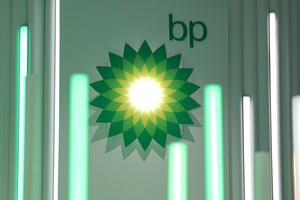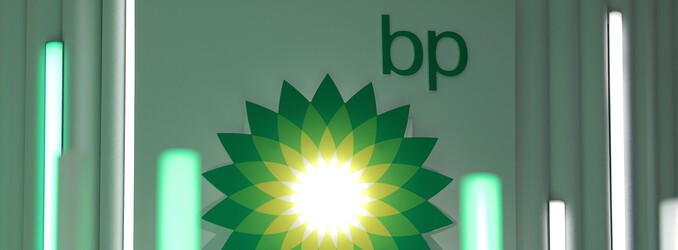(Bloomberg) – bp Plc said it expects to report rising production and a strong result from its oil trading business for the second quarter, offering a boost for the energy major struggling to reverse years of underperformance.

Production for the three months through June is now expected to be higher compared with the first quarter, the London-based company said in a statement on Friday. That’s up from earlier guidance for it to be broadly flat. Output had slipped in the first three months of the year. It will report earnings for the period on Aug. 5.
bp shares rose as much as 3.1% in London as of 9:19 a.m, outperforming the sector. Its statement struck a more upbeat tone than updates this week from its closest rival Shell Plc. and U.S. peer Exxon Mobil Corp.
As it hunts for a new chair, an operational pickup is essential for bp as it tries to get back toward a core business of hydrocarbons. However, it came during a period when oil prices were buffeted by U.S. President Donald Trump’s trade war, shifting OPEC+ policy and Israel’s attacks on Iran. Brent crude slid about 9% over the quarter and was hovering just below $70 a barrel on Friday — the level BP uses to model financial targets in its strategic reset.
Jefferies Financial Group analyst Giacomo Romeo said in a note that Friday’s trading update should drive up consensus earnings expectations for the company. UBS Group analyst Joshua Stone highlighted the “better indicators” of strong oil trading and higher quarterly production, as well as asset writedowns.
The British major remains under growing pressure to demonstrate progress on a turnaround plan announced in February. The shares continue to trail peers and with analysts predicting an even weaker oil market later this year, bp faces a steep climb to convince investors it can ramp up returns.
The UK energy giant said it also sees higher profit margins from refining thanks in part to “a significantly higher level of turnaround activity.” Oil trading generated a strong result in the second quarter, while the performance from gas trading was average, it said.
Both bp and Shell have large but opaque trading businesses that are often key profit drivers. However, Shell warned on Monday that its second-quarter trading results in both gas and oil will be significantly lower than the previous three months. While commodity traders tend to thrive in volatility, the kinds of rapid-fire, headline-driven moves that have followed developments on tariffs and conflict in the Middle East can be harder to trade.
U.S. peer Exxon Mobil Corp. sees lower oil and gas prices to reduce the company’s quarterly earnings by about $1.5 billion. Exxon said it expects some respite from refining margins.
Net debt, which rose by about $4 billion in the first quarter to almost $27 billion, is expected to decline “slightly” in the second quarter.
Those positive signs from trading, refining and upstream could be undermined by asset writedowns of between $500 million to $1.5 billion across unspecified sectors.
bp, whose earnings missed estimates the previous two quarters, is under particular strain as activist investor Elliott Investment Management calls for transformative changes. Chief Executive Officer Murray Auchincloss has vowed to drive up oil and gas production and cut investments in low-carbon energy. He’s also unveiled a plan to sell about $20 billion of assets by the end of 2027.
Yet with the new strategy getting a lukewarm reception from many shareholders, and bp’s market value sliding by a quarter since April last year, the storied British company has increasingly been the subject of takeover chatter. Shell said last month it had no intention of making an offer for its crosstown competitor.
The company is also looking for a new chairman after Helge Lund said in April he planned to step down. The search for a replacement has already seen several qualified candidates demur, and investors will be looking for progress when the company reports earnings Aug. 5.

